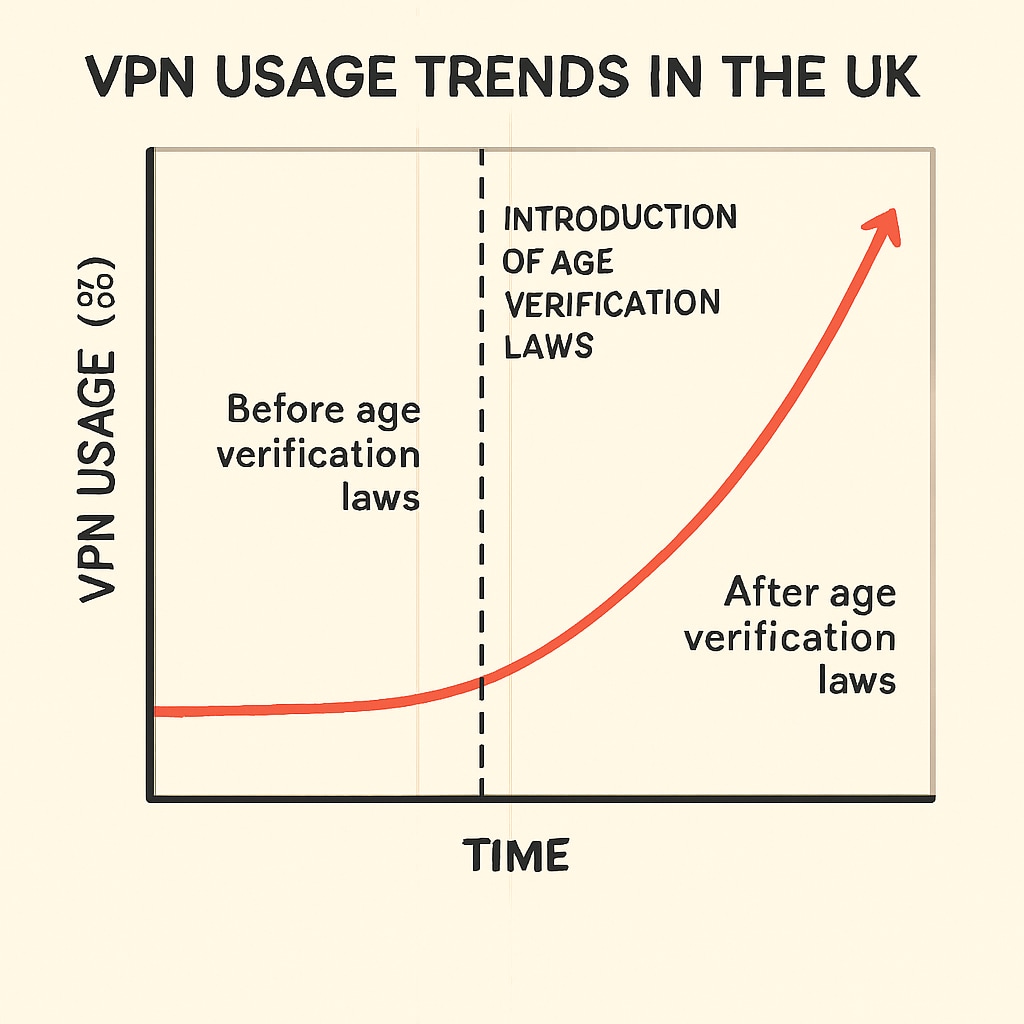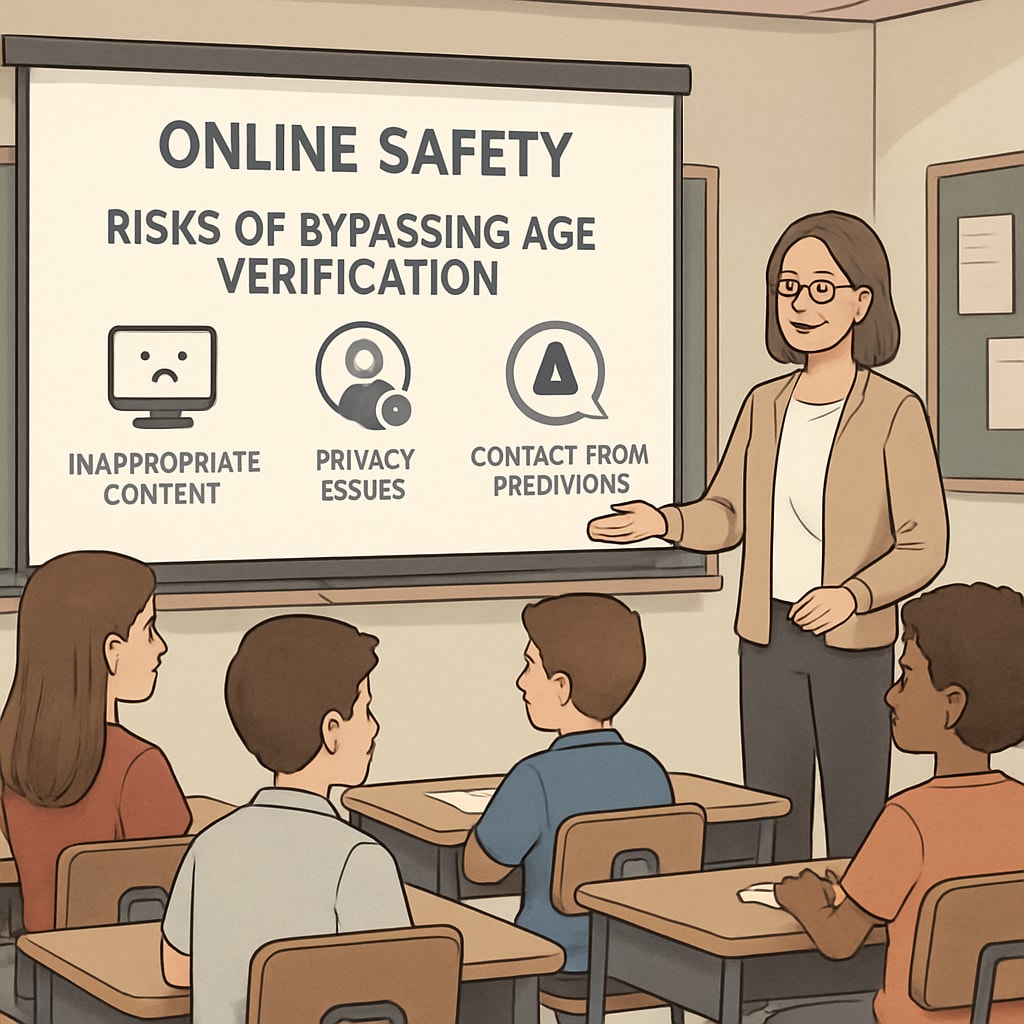Recent age verification laws in the UK have sparked debates about privacy and internet freedom. These regulations aim to protect minors from inappropriate content but have inadvertently triggered a surge in VPN (Virtual Private Network) usage among tech-savvy users. With such developments, K12 education systems are tasked with a new challenge: teaching students to navigate the digital world responsibly while preserving their online privacy. This article delves into the impact of these laws and how education can play a pivotal role in shaping healthy online habits for the next generation.
Understanding the Ripple Effects of Age Verification Laws
Age verification laws, such as those recently enacted in the UK, require websites hosting adult content to verify the age of their users. While the intent is to protect minors, the implementation has raised concerns regarding privacy and data security. For example, users often need to submit personal information to access certain websites, potentially exposing sensitive data to breaches. As a result, many individuals—including minors—turn to VPNs to bypass these restrictions. VPNs allow users to mask their location and access blocked content, creating loopholes in the system.

However, this workaround creates a paradox. While the laws aim to restrict access to harmful content, VPNs can inadvertently expose young users to even greater risks, including malicious websites and data interception. Additionally, the increased reliance on VPNs reflects a broader issue: the lack of education around digital literacy and online ethics.
Why K12 Education Must Prioritize Online Safety
In the face of such challenges, integrating online safety and privacy education into K12 curricula has become imperative. Schools are uniquely positioned to instill foundational digital literacy skills, helping students understand both the benefits and risks of technology. This includes teaching them about age verification systems, the purpose behind such laws, and the potential consequences of bypassing them.
Key areas of focus could include:
- Understanding Digital Footprints: Students should learn how their online actions leave a trace and why protecting personal information is crucial.
- VPN Awareness: While VPNs can enhance privacy, they also come with risks. Educating students on appropriate use is essential.
- Critical Thinking: Encouraging students to evaluate the content they encounter and question its credibility can help them make safer choices online.
- Ethical Internet Use: Discussing the moral implications of bypassing regulations can foster a sense of responsibility.
By addressing these topics, schools can prepare students to make informed decisions in the digital realm.
Navigating the Balance Between Protection and Privacy
The implementation of age verification laws highlights the delicate balance between protecting minors and respecting user privacy. While the intentions are commendable, the unintended consequences, such as increased VPN usage, demonstrate the need for more comprehensive solutions. Education can bridge this gap by equipping students with the tools to navigate these complexities.
For example, rather than solely relying on restrictive measures, policymakers and educators could collaborate to promote awareness campaigns that emphasize responsible internet use. By fostering a culture of digital responsibility, we can achieve long-term protection that goes beyond legal mandates.

The Road Ahead for Digital Literacy
As the digital landscape continues to evolve, so too must our approach to education. The rise in VPN usage following the UK’s age verification laws serves as a wake-up call for educators and policymakers alike. To truly protect young users, we must focus on empowering them with the knowledge and skills to navigate the internet responsibly.
In conclusion, the intersection of age verification laws, VPN usage, and online safety presents both challenges and opportunities. By prioritizing digital literacy in K12 education, we can pave the way for a future where technology enhances learning and growth without compromising privacy or security.
Readability guidance: This article uses short paragraphs and lists to enhance readability. Passive voice is minimized, and transitional phrases ensure smooth flow. Images are strategically placed to complement the text and highlight key points.


